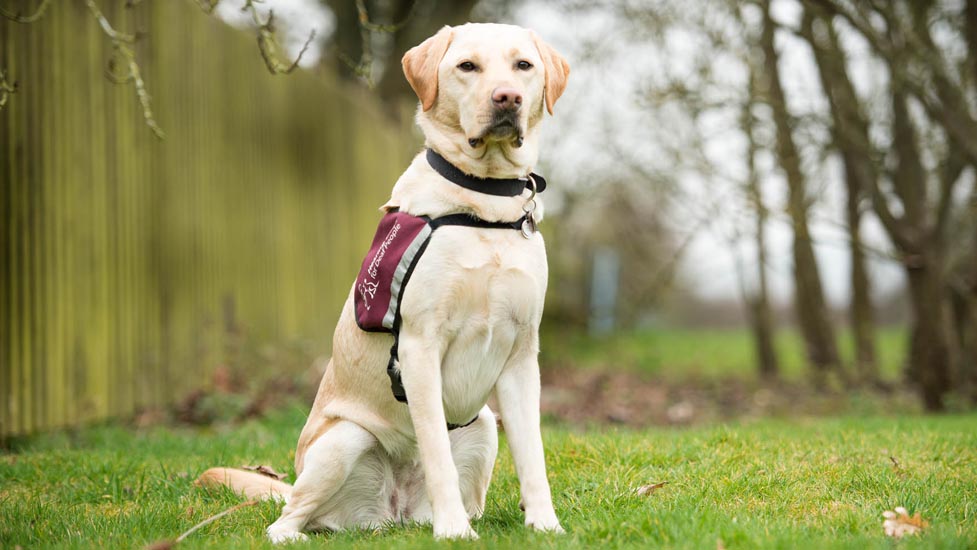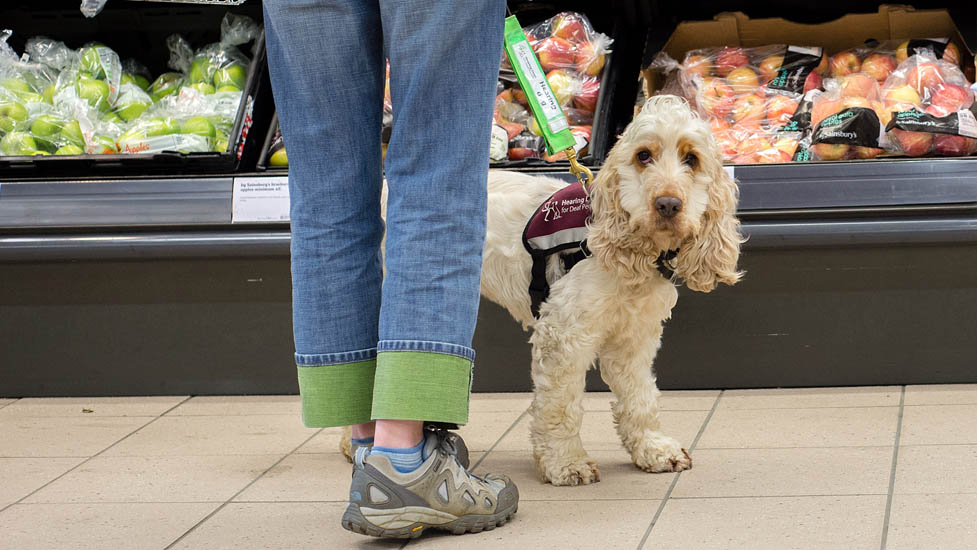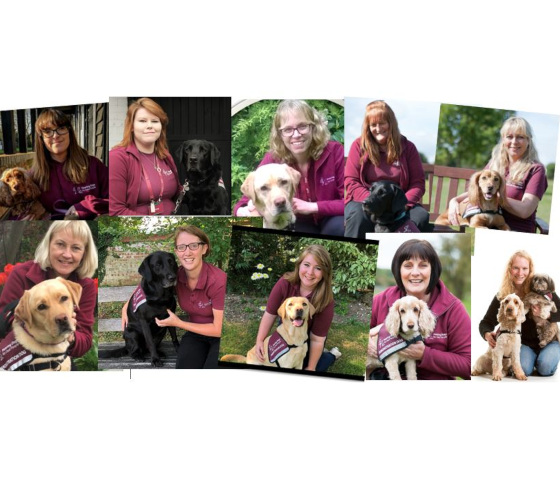Hearing dogs

If you have hearing loss we will discuss with you which of our services would best suit your needs. If we determine together that a dog would be the best option for you, we have three types of dogs that could help.
Almost all the dogs we train go on to help deaf people, even if that’s not as a fully registered assistance dog. We also provide deaf people with sound support dogs and confidence and companion dogs, too.
Get in touch with our applications team today to discuss whether or not a dog would suit your requirements, or find out more below.
Why do we have different dog roles at Hearing Dogs?
At Hearing Dogs we help every puppy reach its full potential. This is why we carefully breed and support them through every step of their upbringing and training.
Every dog is different – and no two puppies learn in the same way. They all have their own individual strengths and characters which we work really hard to develop and build upon. Although we aim for all our dogs-in-training to become registered assistance dogs, some of them take a different but equally important and life-changing path.
Similarly, deafness does not affect any two people in the same way. Everyone has different needs and expectations of how a dog can help them. This is why, when a dog in training is not quite suited to being a full hearing dog, we have a number of roles that would better suit them.
The three types of dogs we provide are:
- Hearing dog (with a jacket and full assistance dog access rights, for deaf people who need sound support both inside and outside of the home.
- Sound support dog (for people who need sound support in the home but not when out and about).
- Companion dog (for people who don't require support with sounds but would benefit from emotional support and companionship because of their deafness or hearing loss). Find out more.
Which type of dog would be best for you?
There are a number of reasons why a certain type of dog could be the ideal match for you. Here’s a bit of information on the three roles:
Hearing dog

This is the best-known dog role we provide – and it’s the one we aim for all our dogs to achieve.
Hearing dogs are part of Assistance Dogs UK (ADUK), which means they and their deaf partners have a legal right to public places. A hearing dog partner is given an ADUK identification booklet to confirm this when they are out and about.
A hearing dog wears the distinctive burgundy hearing dog jacket when out in public. This also helps to make other people aware that the person with the dog is deaf – making deafness more ‘visible’.
They can alert a deaf person to sounds in the home and in public and also provide stability, confidence and comfort.
We provide hearing dogs to adults and a small number of children.
We have trained around 2,500 hearing dogs who have transformed the lives of deaf people. You can read some of their stories here.
Sound support dogs
Our sound support dogs are highly trained to alert deaf people to sounds in the home, but when they are out and about, they don’t wear a Hearing Dogs jacket and don’t accompany their deaf partner to places a pet dog wouldn’t be able to go.
Sometimes a dog gets to the end of their training and is excellent at alerting people to sounds in a home environment, but doesn’t necessarily thrive in certain other environments, such as busy town centres or on public transport. This could be because they get a bit too distracted by the hustle and bustle, or they just feel more comfortable in quieter situations.
We match sound support dogs to people with deteriorating hearing or moderate hearing loss who need to be reliably alerted to sounds within the home, but do not need a dog to accompany them everywhere they go. Find out more.
Companion dogs
A few of our dogs grow up to be very well behaved, but perhaps a little too shy for the proactive soundwork role. These dogs can be matched in a companionship role to people with hearing loss.
The partners of these dogs may not need a dog who is skilled at alerting to sounds, but a dog can bring them substantial confidence and companionship - helping them to feel less isolated. After a period of time in their partners' homes with staff support to ensure the match is successful, these dogs are permanently adopted by their partner. Find out more.

Contact our team to discuss an application
01844 348111 (voice) or 18001 01844 348111(NGT/Text relay)